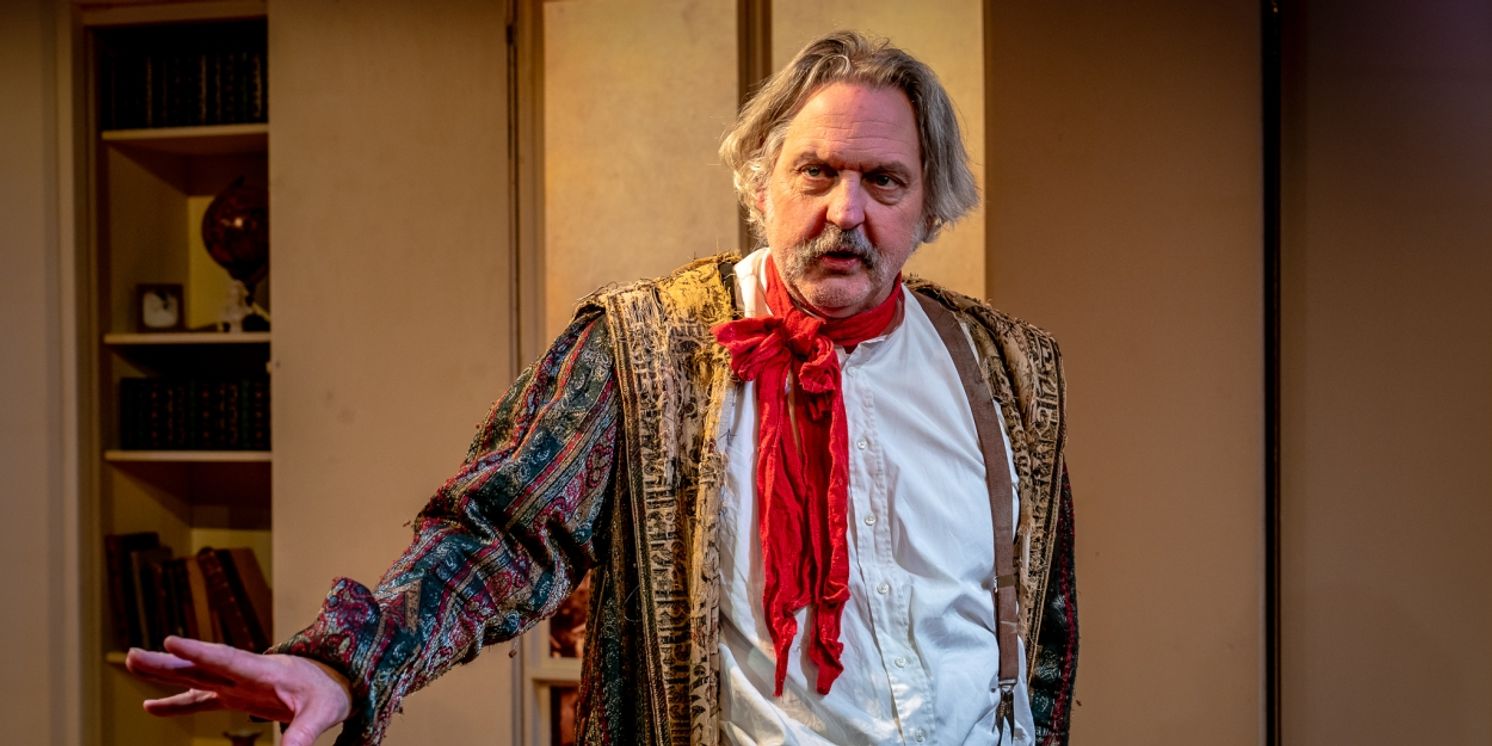Review: THE OYSTER PROBLEM, Jermyn Street Theatre
Historian Orlando Figes’ debut play opens at Jermyn Street Theatre directed by Philip Wilson in a stiff and stuffy production.

![]() When Madame Bovary first appeared on the French literary scene, it was immediately condemned for obscenity and Gustave Flaubert was forced to stand for trial. The argy-bargy that surrounded the prosecution only made the story more famous. Flaubert was acquitted and Emma Bovary got her own novel. However, a dodgy one-off fee publishing deal left the writer without the compensation he deserved.
When Madame Bovary first appeared on the French literary scene, it was immediately condemned for obscenity and Gustave Flaubert was forced to stand for trial. The argy-bargy that surrounded the prosecution only made the story more famous. Flaubert was acquitted and Emma Bovary got her own novel. However, a dodgy one-off fee publishing deal left the writer without the compensation he deserved.
In historian Orlando Figes' debut play, Flaubert's friends Ivan Turgenev, Émile Zola, and George Sand urge him to either strip down his writing to please the masses or get a temporary job to fend off his creditors. Titled because Flaubert wants to eat oysters, but can't afford them, The Oyster Problem opens at Jermyn Street Theatre directed by Philip Wilson in a stiff and stuffy production.
The foursome discuss literature and gossip, trying to grapple with having to negotiate making a living with the need for artistic integrity in a pompous, melodramatic salon of sorts. Very little actually happens while Flaubert struggles to accept that he desperately needs money. Philosophical conversations on democracy and corruption break his irate invectives against editors, managers, publishers, and all those whose role is to sell art.
It's an interesting point of view at the start, but it becomes rather tedious when it's reiterated again and again. Figes' script is needlessly grandiose and pretentious when it doesn't plummet into vulgar instances, backhanded misogyny, or anachronistic interjections. He introduces bland characters who all speak with the same eloquent, lush locutions.
Gustave Flaubert is proposed as an excessively proud, overdramatic, self-piteous man who's the opposite of proactive in his problems. Bob Barrett has him grow unfortunately unlikeable in his performance, crystallising the fact that his misery is his own doing. His placid complacency is juxtaposed with Zola's ambition and hunger for success. Portrayed by Peter Hannah, he is an intense, passionate presence with a lads-lads-lads attitude.
Joined by a soft-spoken Giles Taylor as Turgenev and Norma Atallah as Sand, they go off on one too many didactic tangents. The attempt to balance a romantic exploration of art and beauty with Flaubert's infuriating stubbornness doesn't hit the mark. The Oyster Problem is overlong and under-directed. It's visually and narratively static, with enough surplus material to produce another show out of it.
The authors sit and bloviate about the changing landscape of literature, trying to find elegance and symbolism in everyday life, while Figes tries and fails to make them relatable. Two gruelling hours and 20 minutes are way too long for such a stagnant plot. Wilson's direction doesn't help with the issue, adding very little appeal. Isabella Van Braeckel's period costumes are well-curated (we'll close an eye in regard to Zola's horrendous funeral furs) but her set is sloppy with bubbling stickers and an overly traditional, unimaginative approach.
Just as Flaubert once said: "There is no truth. There is only perception". Some might find this play as insightful, fascinating, and engaging as the writers in it. We sadly didn't.
The Oyster Problem runs at Jermyn Street Theatre until 4 March.
Photo credit: Steve Gregson
Reader Reviews
Videos

